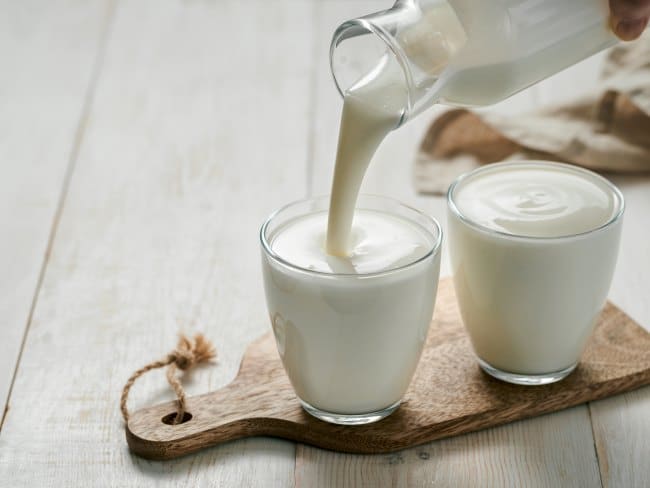LifeSurance.info – Buttermilk is a type of fermented milk that is the result of separating fat from milk cream before it becomes butter. Although it is obtained from the remaining liquid from making butter, this ingredient can now be utilized by adding bacteria that produce lactic acid to it.
Buttermilk is commonly used to thicken cake batter, pancakes, and biscuits. In addition, this ingredient can also help provide a soft texture and distinctive flavor to food.
Buttermilk consists of 2 types, namely traditional buttermilk and cultured buttermilk. Both types can be used for various types of food, depending on taste and needs.
Buttermilk and Benefits for the Body
Buttermilk is low in lactose and contains a variety of nutrients, such as protein, fiber, carbohydrates, and vitamins. In addition, buttermilk also contains several vitamins and minerals, such as vitamin K12, riboflavin, potassium, calcium, and phosphorus.
The following are the nutrients that can be obtained by consuming buttermilk:
1. Increase bone strength
Buttermilk can help increase bone strength thanks to its calcium and phosphorus content. In addition, buttermilk also contains vitamin K2 which plays a role in the absorption of calcium in the body.
Research also states that people who get enough phosphorus intake, for example from buttermilk, every day can build and maintain strong bones.
2. Improve oral health
Buttermilk is also beneficial in improving oral health. This benefit is associated with the anti-inflammatory effects of buttermilk which help prevent or accelerate inflammation of the body, especially in the skin cells that line the mouth. The calcium content in it can be useful for reducing the risk of inflammation of the gums and surrounding tissue (periodontitis).
3. Control cholesterol levels
There is research that states that consuming buttermilk can lower cholesterol levels in the body. This is thought to be due to the sphingolipid compounds in buttermilk which inhibit the absorption of cholesterol in the intestines.
4. Lower blood pressure
Thanks to its potassium content, buttermilk can help lower blood pressure. Studies have shown that consuming buttermilk can reduce blood pressure when the heart contracts to pump blood throughout the body (systolic blood pressure).
However, the benefits of buttermilk in lowering blood pressure still require further research.
Buttermilk and Its Uses
Buttermilk is a versatile ingredient that can be used for many things. In addition to being consumed directly with the addition of water, this fermented milk can be consumed with cereal or as an ingredient to make snacks, such as cakes or biscuits.
Not only that, buttermilk can also be mixed into marinades for meat dishes. Thanks to its acidity, adding buttermilk to meat dishes can provide a more delicious and distinctive taste to food.
Keep in mind, that although buttermilk has health benefits and is low in lactose, people with lactose intolerance should still be careful when consuming it. This is important to avoid allergic reactions that may arise.
Therefore, if you have a milk allergy or lactose intolerance and want to use buttermilk as an additional ingredient in cooking, you can ask your doctor. The doctor will provide advice on using buttermilk and ensure its safety for you to consume.
